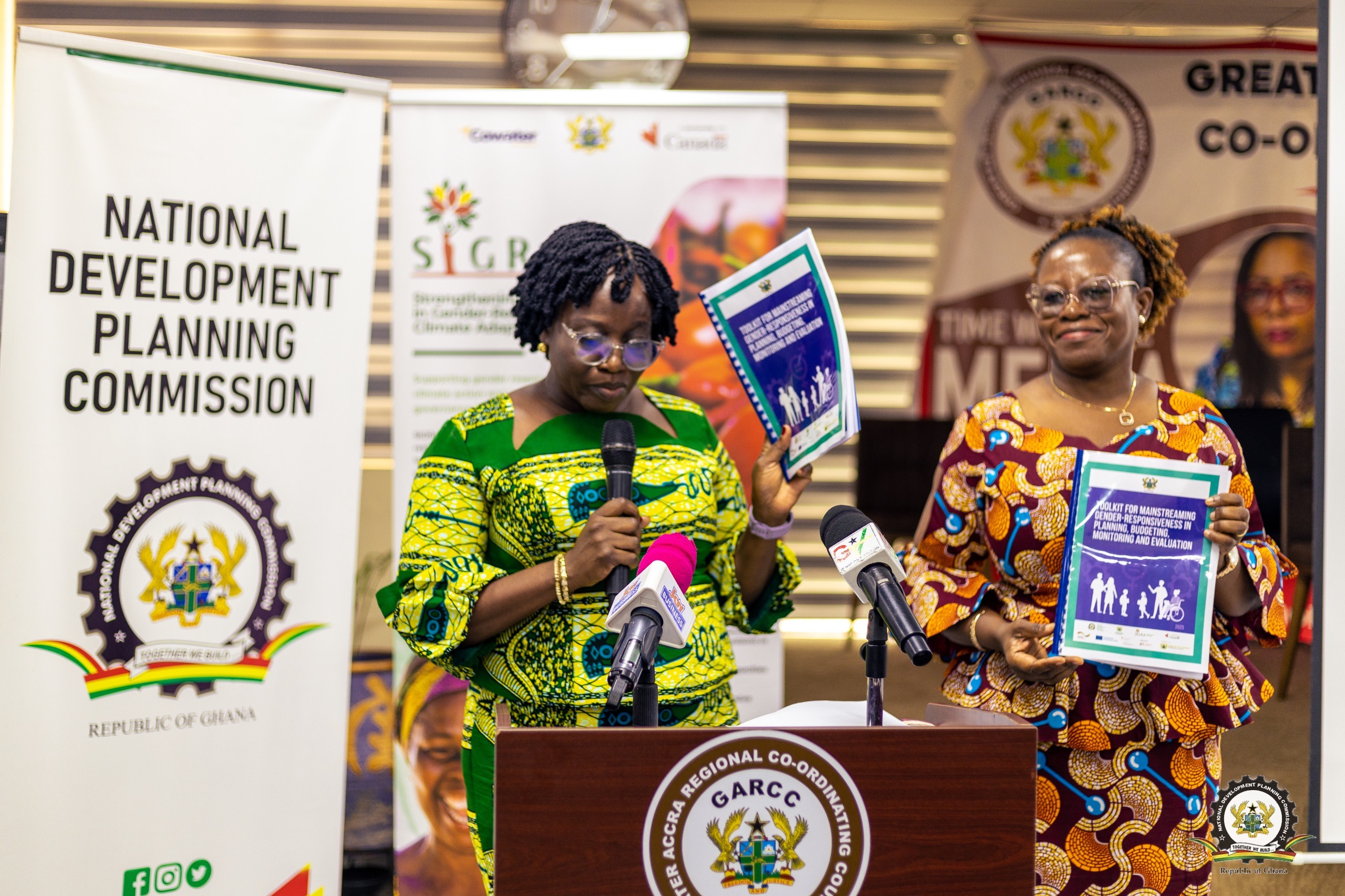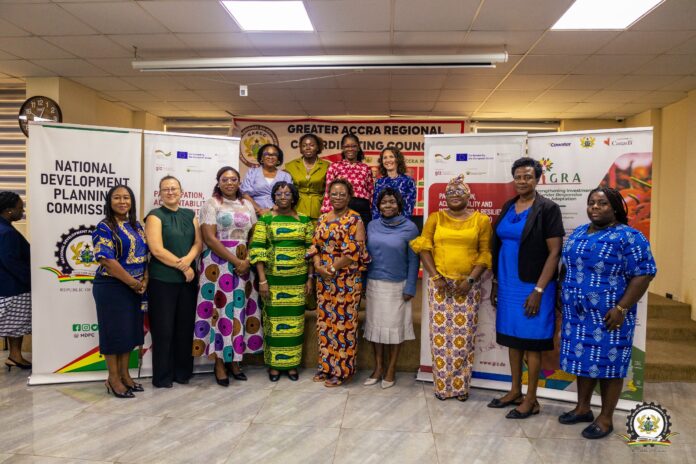Ghana has officially launched the revised Gender Toolkit, a key resource aimed at ensuring that gender equality becomes an integral part of national and district development planning for the period 2026–2029.
The initiative is led by the National Development Planning Commission (NDPC) in collaboration with the Ministry of Gender, Children and Social Protection, the Ministry of Finance, and development partners.
It provides practical guidance for mainstreaming gender into planning, budgeting, monitoring, and evaluation at all levels of governance.
The toolkit was developed with support from the Participation, Accountability, and Integrity for a Resilient Democracy (PAIReD) programme, commissioned by the German Federal Ministry for Economic Cooperation and Development (BMZ), co-financed by the European Union (EU) and the Swiss State Secretariat for Economic Affairs (SECO), and implemented by GIZ.
It also received backing from the Strengthening Investments in Gender-Responsive Climate Adaptation (SIGRA) project, funded by Global Affairs Canada and implemented by Cowater International.
Speaking at the launch, Acting Director General of the NDPC, Dr. Audrey Smoke Amoah, described the toolkit as “a deliberate and practical operational manual, a compass designed to guide us in fulfilling our deepest national commitment to equity and justice, as enshrined in the 1992 Constitution.”
She emphasized that it would also support the implementation of the Affirmative Action (Gender Equity) Act, 2024 (Act 1121).

Dr. Amoah noted that the resource equips planning officers, budget analysts, and gender desk officers with step-by-step tools to integrate gender perspectives at every stage of the planning cycle, thereby ensuring that development efforts address the needs of women, youth, persons with disabilities, and other vulnerable groups.
Delivering solidarity remarks, PAIReD Component Manager Laetitia Erny described the toolkit as a turning point in Ghana’s development practice.
“It brings gender perspectives into sharper focus, not as an add-on, but as an integral part of the planning, budgeting, monitoring, and evaluation processes,” she said, adding that it aligns with both Ghana’s national priorities and international commitments, including the Sustainable Development Goals.
Chairing the event, Mrs. Lilian Baeka, Chief Director of the Greater Accra Regional Coordinating Council, stressed that the toolkit must drive urgent action.
“For too long, planning processes have overlooked gender disparities. This toolkit changes that trajectory,” she said, urging Metropolitan, Municipal, and District Assemblies to adopt it fully in their upcoming medium-term development plans.
The launch brought together representatives from government, civil society, academia, and Ghana’s development partners, all of whom pledged to support gender-responsive planning and ensure that strategic initiatives address inequities across society.
The revised Gender Toolkit complements NDPC’s Medium-Term Development Planning Guidelines (2026–2029) and is expected to serve as a catalyst for more inclusive policies, equitable resource allocation, and sustainable development across the country.
Source: Adomonline
ALSO READ:


